QuestionI've been in battle with our Wal-Mart selling fish that for one, they have little to know info. about, secondly, they don't even sell the food for them, (and we live 2 1/2 hours from any town) and three, no matter what your experience is, they seem to die extremely early. I'm am more of a Betta buff, but decided to study green spotted puffers. I even did research before the purchase and had food sent express from e-bay. Anyway, the woman named Sarah that asked a question about her fish was extremely normal for Wal-Mart. Since these puffers are supposably OK on freshwater, IF brought up on freshwater and then maybe graduated into brackish, they would be OK. But I can verify Wal-Mart is extremely at fault for several deaths in all of their fish tanks. That's originally what got me into saving the Bettas. I don't want to just keep buying and giving to good homes because of course I'll be contributing to the demand. I believe my concern is becoming more obvious and hopefully they'll do something soon. ANYWAY, my question is regarding my puffers. I bought 2, one died 2 days later. Was eating a variety of food until I got it right. Frozen blood worms thawed, freeze dried blood worms dehydrated, same with shrimp. But after the one died, I bought 2 more. One has red on his tail starting from the body spreading to the tip, and not just in color but it has a thickness to it. The other fish acts as if it's paralyzed on the right side. Tail only flips one way and fin won't move. It's horrible. I have it in a hosp. tank right now with Myacine 2 and some fungus clear. I fear it's too late for that one. Have you heard of either of these problems. Please respond soon. And I promise to speak for all fish being taken to Wal-Mart and sold improperly. It sickens me to think I might have to pull a "Free Willy" with all the fish. We live 2 miles from Lake Powell. I realize it's not something they'd live long in, but they'd sure get a good swim before the end, which is their doom at Wal-Mart anyway. Thanks for any help, Erica
AnswerHi Erica,
I agree with you on Walmart. I have yet to meet someone working in the fish department that know something about fish. If your Walmart is anything like ours, the people working there know nothing about keeping aquariums, or the fish in it. Those tanks are always full of disease, and they do not bother to check the PH, ammonia, nitrites, or nitrate levels. They hardly have the time to bag a fish, let alone caring for them. These places should not be allowed to sell fish. Sadly there are no laws to protect fish.
Puffers, depending on the ones you bought need salt in their water. 2-3 teaspoons of salt to one gallon, is what most need. When you buy a puffer, the person who is selling him to you, must inform you on how much salt the puffer is in. If they do not know, then when bringing him home, and introducing the little guy to your tank, and your tank is not set up with the same amount of salt, the puffer will get very sick. If he was in a tank with 3 teaspoons of salt, and you bring him home to a tank with less salt, or no salt, the puffer will go into what is called "osmotic shock." You must know the exact condition the water he was in, and make sure your water is the same. You also must know what puffer you are buying, and read up on his needs. The green spotted puffer (Tetraodon nigrovinidid) is often confused with the ceylon puffer ( Tetraodon fluviatilis) and the freshwater green puffer ( Tetraodon schoutederi) These three fish look alike, so you must be sure of the one you are buying, as they all have different needs.
Puffers need special diets. They must have worms (buy the worms at the bait store, clean them buy leaving them in oats for about one week,) baby fish, brine shrimp, ghost shrimp, mollusks, crustaceans, bloodworms, krill, snails, and shellfish with the shell. The reason for the shells is that they must grind their teeth, keep their teeth worn down. If they do not have shells to keep their teeth grinded down, there comes a day, when they cannot eat. The puffers teeth grow all his life. They also need vegetation.
They should have sandy bottom tanks, with hiding places, and plants. They also need big tanks, 50-60 gallons is best. Their water should be alkaline, free of ammonia, nitrites, and nitrates. Weekly water changes are very very important.
Puffers should be kept alone in tanks, as they are a little aggressive, and will bite other fish.
I doubt that walmart knows how to keep puffers, or any other fish. If they just dump the puffer into their water, without considering the puffers needs, the puffer gets sick there, and then. When you bring him home, he is already in shock, and then another shock to your tank. It's a terrible thing to happen to these poor fish who never asked to be taken out of their habitat...the least they could do is read up on him, and make sure their tanks are ready for them. It just turns my stomach over.
There is nothing you can do sadly to save these poor fish, unless you know exactly what water they were kept in, but even then, if the store did not bother to give them the attention they needed, then, the fish is doomed. It's horrible, I know.
The betta stands a better chance of making it. Bettas have been known to recover by making many water changes when we first buy them if they look ragged. Bettas also need heated 5 gallon tanks. These miserable little cups they keep them in, is a sin. In his habitat the betta may live in shallow water, but he has lots of room to swim. The temperature of his tank should be 82 degrees. Of course they never come in warm water when we buy them, so we must be very careful. We must put them in water the same temperature as the water we buy them in, and slowly, very slowly bring the temperature up. One degree every two days, as bringing up the temperature too fast would be deadly. Betta need varied diets too, and must be cared for.
Bless your heart for trying to do something about the way these fish are treated. I wish more people were like you, maybe in time, with more information things will change, hopefully.
Lynda

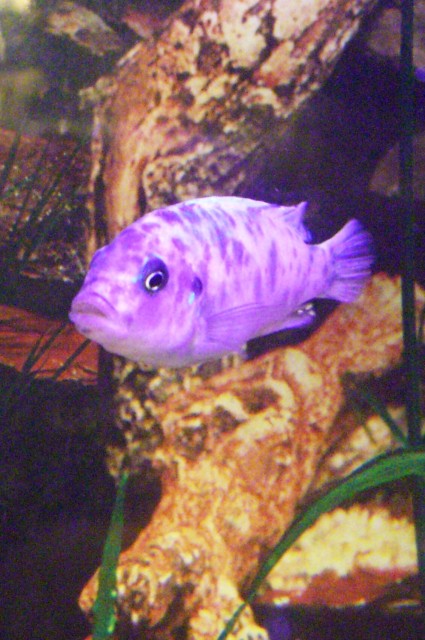 Purple Cichlids
Question
Purple C
I have found a picture of a purple ci
Purple Cichlids
Question
Purple C
I have found a picture of a purple ci
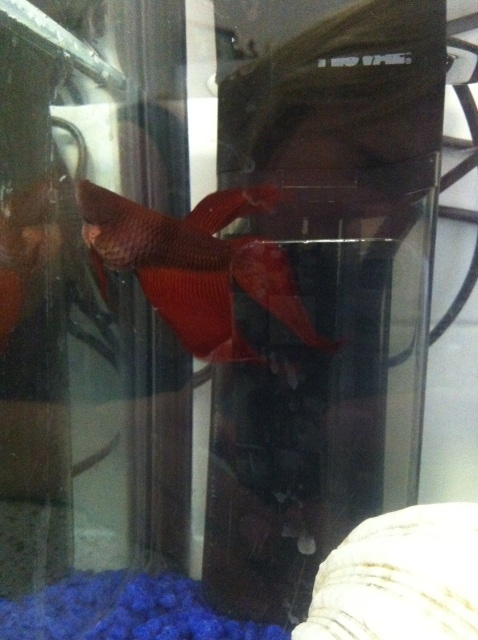 Betta with large lump under head
Question
Betta
Hi Jaymie,
I have had my male be
Betta with large lump under head
Question
Betta
Hi Jaymie,
I have had my male be
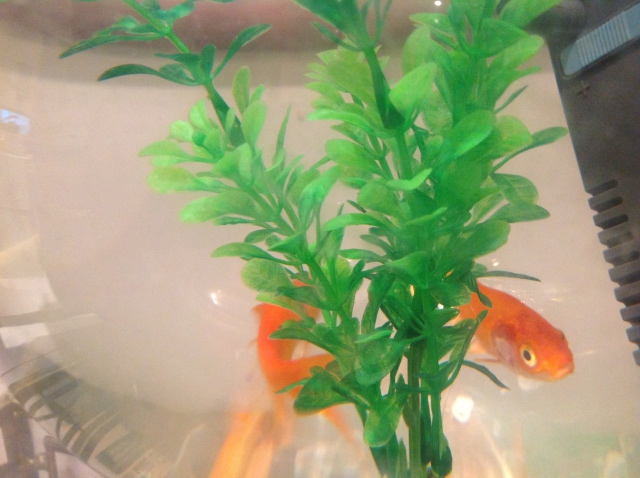 Gold fish
QuestionQUESTION: hi!
I am keeping gold fish for last m
Gold fish
QuestionQUESTION: hi!
I am keeping gold fish for last m
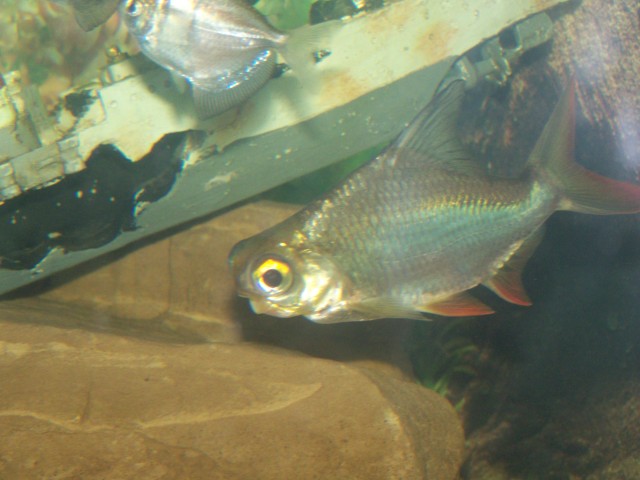 identify my freshwater fish
Question
Google the Mystery fis
Got this guy a year ago
identify my freshwater fish
Question
Google the Mystery fis
Got this guy a year ago
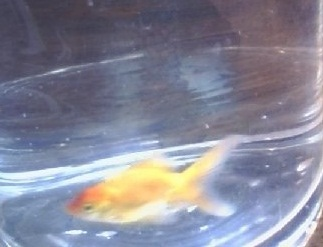 Goldfish Issue
Question
Goldfish Image
Hi. My fish is a goldfis
Goldfish Issue
Question
Goldfish Image
Hi. My fish is a goldfis